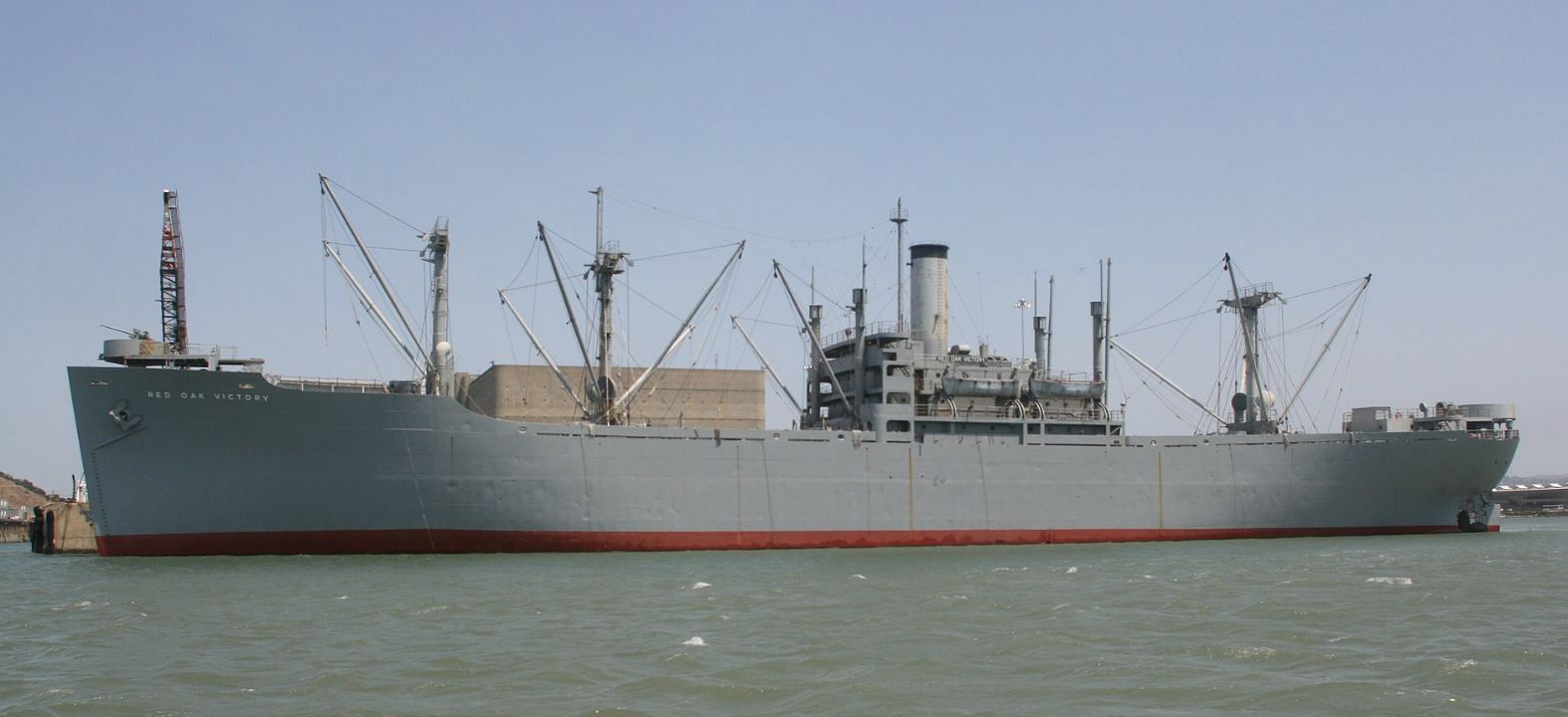Difference between revisions of "USAT Winchester Victory"
From Our Contribution
(Created page with "{{Infobox ship | image = File:USAT_Winchestere Victory_1.jpg | caption = Typical Victory ship | image2 = | caption2 = | shipname = USAT Winc...") |
(→Soldiers carried) |
||
| (4 intermediate revisions by the same user not shown) | |||
| Line 1: | Line 1: | ||
{{Infobox ship | {{Infobox ship | ||
| − | | image = [[File: | + | | image = [[File:USAT_Winchester Victory_1.jpg]] |
| caption = Typical Victory ship | | caption = Typical Victory ship | ||
| image2 = | | image2 = | ||
| Line 29: | Line 29: | ||
==Remarks== | ==Remarks== | ||
| − | + | This Victory ship belonged to a class of cargo ship produced in large numbers by North American shipyards during World War II to replace losses caused by German submarines. They were a more modern design compared to the earlier Liberty ships, were slightly larger and had more powerful steam turbine engines giving higher speed to allow participation in high speed convoys and make them more difficult targets for German U-boats. A total of 531 Victory ships were built, 97 of them converted to carry troops, as was ''Winchester Victory'. | |
| − | Victory ships were | + | Victory ships were armed with a 5-inch (127 mm)/38 caliber stern gun for use against submarines and surface ships, and a bow-mounted 3-inch (76 mm)/50 caliber gun and eight 20 mm cannon for use against aircraft. These guns were manned by United States Navy Armed Guard personnel. |
| + | ==Soldiers carried== | ||
| − | == | + | ===Ambon to Morotai 3 - 5 January 1946=== |
| + | * [[Stan John Barrett]] | ||
| − | ===Macassar to Brisbane | + | ===Macassar to Brisbane 21 - 23 January 1946=== |
* [[Edward Maurice Trew]] | * [[Edward Maurice Trew]] | ||
Latest revision as of 21:32, 16 July 2024
Contents
Remarks
This Victory ship belonged to a class of cargo ship produced in large numbers by North American shipyards during World War II to replace losses caused by German submarines. They were a more modern design compared to the earlier Liberty ships, were slightly larger and had more powerful steam turbine engines giving higher speed to allow participation in high speed convoys and make them more difficult targets for German U-boats. A total of 531 Victory ships were built, 97 of them converted to carry troops, as was Winchester Victory'.
Victory ships were armed with a 5-inch (127 mm)/38 caliber stern gun for use against submarines and surface ships, and a bow-mounted 3-inch (76 mm)/50 caliber gun and eight 20 mm cannon for use against aircraft. These guns were manned by United States Navy Armed Guard personnel.
